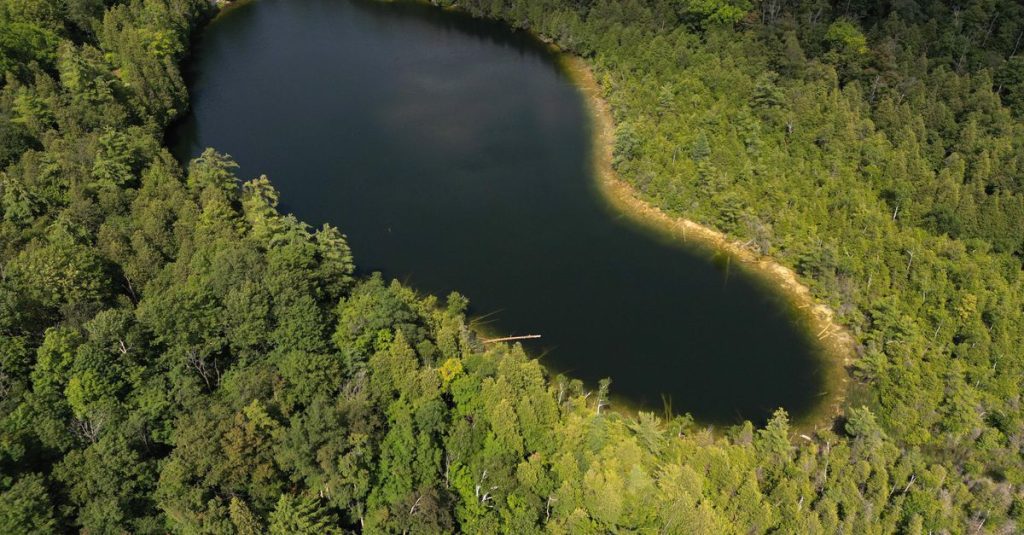The Anthropocene is viewed as the era in which humans impact Earth more than traditional geological forces such as volcanic eruptions, plate tectonics, and weather. But the working group's proposal to declare the Anthropocene an official new geological epoch was recently rejected. This has sparked a lot of controversy in recent weeks.
This working group was established in 2009, and ten years later concluded that the Anthropocene should become a new geological epoch, beginning “around 1950.” In recent years, the working group has selected twelve places on Earth where human impact is particularly evident, for example through the appearance of radioactive materials or fossil combustion residues. Among those twelve sites, Lake Crawford in Canada was chosen as the reference site for the Anthropocene.
Read also
Saber-toothed tigers, cave lions and giant tortoises… their extinction is caused by humans, not climate
The working group, working within the International Union of Geological Sciences, then submitted its proposal last October to the subcommittee on the geological division of the Quaternary (2.58 million years ago to the present). On that subcommittee, twelve members voted against the proposal, and four voted in favor. Even before the voting results were officially announced, it was Already leaked to New York timesWhich he wrote about on March 5. A day later, four members of the working group responded, two of whom were also on the subcommittee. on the site Conversation They called this process The vote was controversial and contrary to the subcommittee's bylaws. They wanted to cancel the vote.
“There was a lot of impatience within the subcommittee to come to a vote,” admits geologist Kim Cohen of Utrecht University, a member of the subcommittee who voted in favor of the project.
Most of them are completely preserved
According to Cohen, much of the disagreement revolves around the question of whether the last 70 years – the period from about 1950 – are also within the realm of geology. “Many geologists don't think so. But I find that very conservative.” Cohen himself believes that geology continues up to the present. “And the closer we get to the present, the shorter the geological periods are, because the most recent eras are also the most completely preserved and the most diverse in study. “
Another frequently used argument is the fact that humans have been affecting large parts of the Earth for thousands of years. That influence has grown tremendously since 1950, proponents say.
Then there is the argument that the word Anthropocene is now widely used in science and in society. Why should geology be allowed to hijack it? But according to Cohen, there is no doubt that a kidnapping occurred. He calls the Anthropocene “a mature term that can be used in different ways by different people in different contexts.”
The issue of voting has been submitted to the Supreme Committee concerned with the classification of all geological eras. She agreed to vote last Wednesday.

“Coffee buff. Twitter fanatic. Tv practitioner. Social media advocate. Pop culture ninja.”












More Stories
Which can cause an increase in nitrogen.
The Central State Real Estate Agency has no additional space to accommodate Ukrainians.
The oystercatcher, the “unlucky national bird,” is increasingly breeding on rooftops.